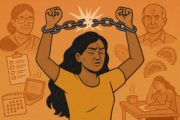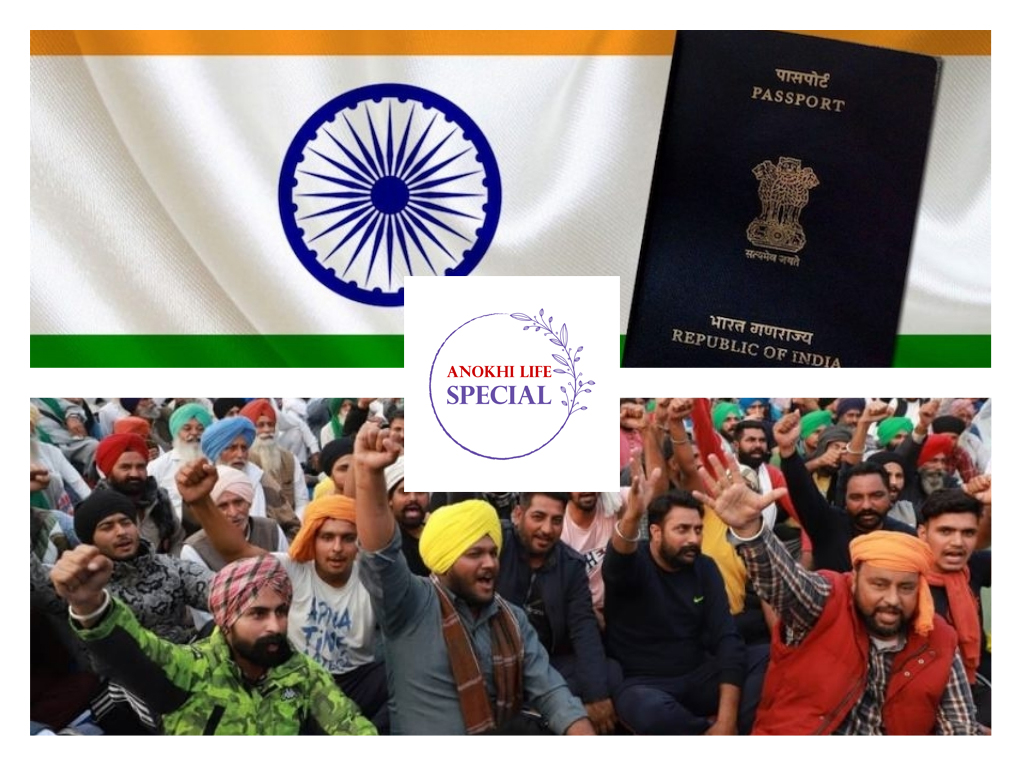In our final instalment of our 3-part series to commemorate World Day Of Social Justice (Feb 20th) we take a closer look at the plight of the Muslims and the farmers who are fighting for their livelihood. Is Prime Minister Modi turning a blind eye to these human rights issues?
Read our report about Pakistan’s Blasphemy Laws.
Read our report on Sri Lanka’s decades-long history of enforced disappearances of their citizens
The Citizenship Amendment Act (CAA). The National Register of Citizens. The lockdown in Kashmir. International Spies Aiding The Farmers Protests.
What do all of these things have in common?
Well, sadly it is the fact that they are nationalist and anti-Muslim changes that have been introduced in India by Prime Minister Narendra Modi.
If you’re not sure what I’m talking about, hang tight (and maybe make sure you’re sitting down) — we here are Anokhi Life have got the scoop on what’s been causing strife across India.
The Citizenship Amendment Act (CAA):
The Citizenship Amendment Act (CAA), which became law on December 12, 2019, didn’t get as much attention outside of India as it should have.
According to The Intercept, “The CAA fast-tracks Indian citizenship for Hindus, Sikhs, Buddhist, Christians, Parsis, and Jains who arrived in India before December 31, 2014, from its Muslim-majority neighbours, namely Pakistan, Bangladesh, and Afghanistan. By smoothing the path for all non-Muslim immigrants from adjoining countries to attain citizenship, the law paves the way for practitioners of Islam to be unfairly disadvantaged when seeking to immigrate to India. Indian Prime Minister Narendra Modi has framed the CAA as a noble effort to welcome Hindus who are oppressed in neighbouring Muslim-majority countries.”
Instead, it seems like Prime Minister Modi is trying to enforce his harmful “…brand of Hindu nationalism known as Hindutva, which aims to define Indian culture in terms of Hindu history and values and which promotes an exclusionary attitude toward Muslims,” notes Vox.
Now, I’m no genius, but why should one group of oppressed persons be more valuable than the other (which is essentially what this law implies)? This is particularly concerning given that according to Vox,“India’s Constitution guarantees everyone equality under the law. Religion is not a criterion for citizenship eligibility, a decision that goes all the way back to the 1940s when India was founded as a secular state with special protections for minorities like Muslims.”
That said, I find it difficult to believe that Prime Minister Modi was simply trying to ‘help out’ Hindus with the introduction of the CAA.
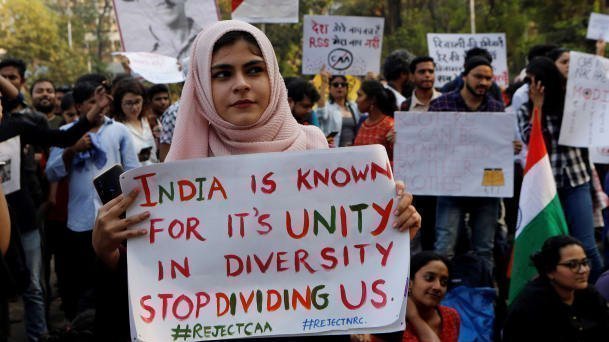
The Exclusion of Muslims On The National Register of Citizens (NRC):
Following The CAA coming into effect in India, the people of Assam began to rally to oppose the law. The concern is rooted in their “…indigenous fears about being demographically and culturally swamped by “outsiders,” reports BBC.
First, I have to mention that in Assam has the second-highest number of Muslims than any other part of India, representing a third of its population.
Unlawful migrations of persons from Bangladesh have also been an ongoing issue in Assam. In the past, following “a six-year anti-foreigner protest in the 1980s,” a resolution was established in 1985 between the governing administration and demonstrators, which outlined that “…anyone who entered Assam without proper documentation after 24 March 1971 would be declared a foreigner and deported,” highlights BBC.
Fast-forward to August 2019, when the National Register of Citizens (NRC) — originally established in 1951 for the purpose of “…identifying “genuine” citizens” — was refreshed at the request of India’s Supreme Court.
The NRC that was to be rolled out in August 2019 did not include approximately two million people basically taking away their citizenship.
According to the BBC, aside from this whole list being problematic, in and of itself, the government was forced to delay broadcasting the NRC, officially, due to ‘inaccuracies.’ The issue was that the NRC had incorrectly removed many “…Bengali Hindus – a strong voter base for the party – [from] the list, and [they were now at] risk [of] becoming illegal immigrants.”
For the Muslim people of Assam, who make up a law part of the population, the problem is two-fold: the reinstatement of the NRC and the introduction of The CAA puts them in a position to potentially be “…singled out as illegal immigrants on the basis of their religion,” notes BBC.
The nationalist agenda of Prime Minister Modi’s government is showing itself in an ugly and unconstitutional way with these actions, as they boldly seek to seemingly purge India of the less ‘preferred’ Muslim population.
To be frank: it’s the audacity for me.
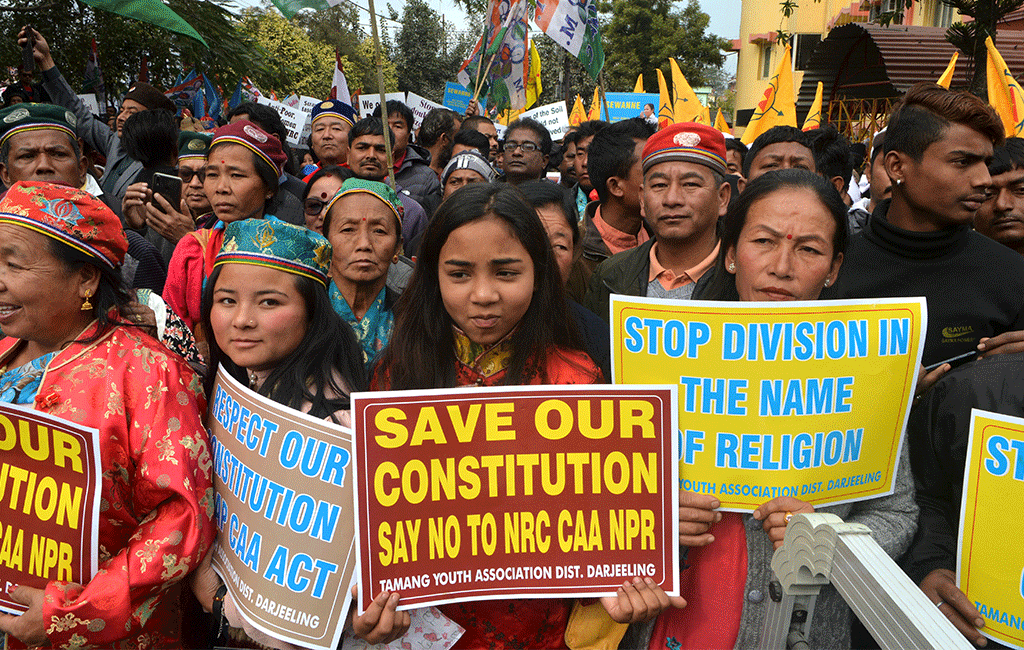
Let’s Discuss The Lockdown in Kashmir:
According to Minority Rights Group International, “the region of Kashmir has been highly contested since the 1947 Partition of India, when it was divided into Indian-administered Kashmir and Pakistan-administered Kashmir and Chinese-administered Kashmir. After…[fighting] for control over the region, fought by India and Pakistan, Indian-administered Kashmir was given semi-autonomous status in 1949. In 1950, Articles 370 and 35A were introduced in the Indian constitution, granting Kashmir autonomy, in all areas except defence, communication and foreign policy.”
They further state that however, the sovereignty granted in Indian Kashmir has been a cause of disputes for “…Hindu nationalists [who disagree with] the constitution [being] in favour of Muslim-majority states.”
Enter Prime Minister Modi’s Hindu nationalist agenda, which resulted in Article 370 being rescinded on August 5, 2019.
And that’s not all. Prime Minister Modi’s administration will also be restructuring the “…state…into two federal territories. One of these — still called Jammu and Kashmir — would have a state legislature, while the other, a remote mountainous area called Ladakh, would be under direct central governance,” reports The Washington Post.
They have reported such actions resulting in the following:
- “Limit[s] the authority of [Kashmir’s] local government,” which takes away their sovereignty.
- The governing body in Indian Kashmir can no longer “…make residency rules, meaning outsiders who previously could not buy land in Kashmir can now do so.”
How best to implement such a problematic violation of constitutional rights?
A lockdown was implemented in August 2019 by the armed forces, “which saw Indian soldiers using brutal and indiscriminate violence” against the people of Kashmir.
People were forbidden from leaving their homes. Internat, phone lines and the post offices were suspended. When the pandemic hit in March 2020, the government gave in and reinstated some internet services in Indian Kashmir, which arguably was mainly done to allow them to access information that was critical for combatting COVID-19, explains The Conversation. However, the internet has been intermittent in Indian Kashmir as it’s been taken offline “55 times since it was restored in March 2020,” notes The Conversation.
If you weren’t already alarmed, here’s another concerning fact: Since the lockdown began in Indian Kashmir from August 2019 to June 2020, the armed forces have claimed the lives of “…more than 229 people, while COVID-19 has taken 141 lives,” highlights The Conversation.
It is evident that the government is using its power to impose its nationalist ideals to create a version of India that does not include Muslims, as their actions have targeted areas that are made up of large Muslim populations, such as Indian Kashmir.
The discrimination has been blatant, regardless of how Prime Minister Modi has tried to spin the rescindment of Article 370.
But, when the constitution gets thrown out the window, what are a few human rights alongside it, right?!
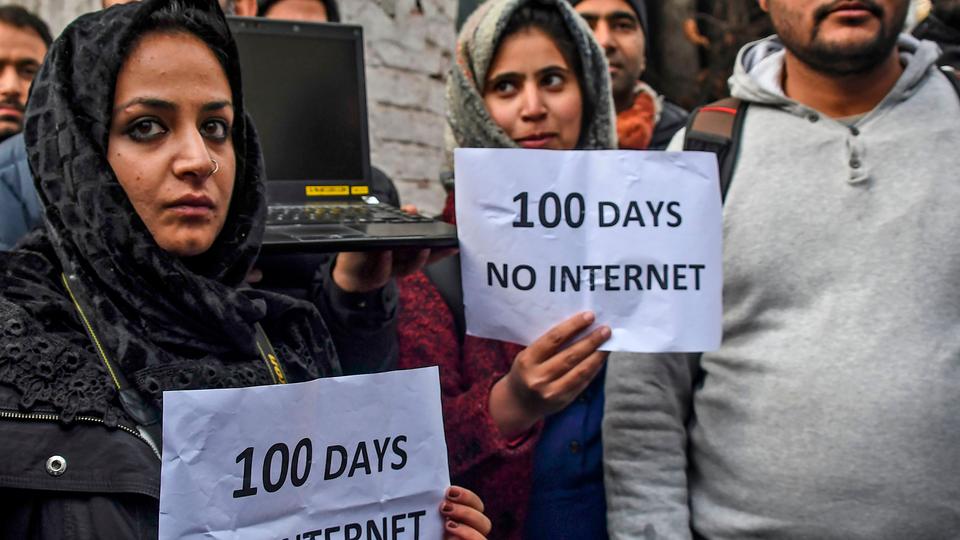
The Farmers’ Plight Turning Into A Question Of Patriotism:
The fact is that the government seems to be concerned about strengthening their Hindu nationalist agenda.
Maintaining human rights, the secular nature of the constitution, or the constitution itself does not seem to be a concern for Prime Minister Modi’s government. And, when there is dissent, they are not afraid to use force to silence protestors or cut off online access to limit the ability of demonstrators to organize or voice their concerns. They did it in Indian Kashmir and they have done it again throughout the Farmers Protests (for a comprehensive breakdown of the protests, click here for our full report).
But, Modi’s nationalist brainwashing seems to be working, which is deeply concerning, especially after it resulted in Rihanna being labelled as a spy for Pakistan (what a joke — sis is sitting on a billion-dollar empire, ain’t nobody got time for anything else).

We have recently reported that the Delhi Police have now arrested climate change activist Disha Ravi on various charges including sedition. Another concern that any form of dissent or freedom of speech are being threatened. The country is being divided into two groups: “patriots” for those who support the government, while those who support the farmers as people who truly do not have the best interest of their country.
As the world looks on and tries to lend its support, India is increasingly becoming unsafe for Muslims, who are being stripped of their rights and any sense of belonging, as they are being not-so-subtly told that they are not wanted within the nation. Meanwhile, India’s much-revered farmers are being labelled as miscreants for standing up for their livelihoods. And the mainstream celebrities who are standing up for the farmers are being discarded as sensationalists with biases who just want to stir up trouble.
In the months to come, it is crucial that protestors on both fronts to not take their foot off the gas and continue to oppose these unconstitutional and nationalist violations, because who knows what will be next on Prime Minister Modi’s agenda?
Stay woke, friends.
Main Image Photo Credit: www.best-citizenships.com (passport & flag), www.outlookindia.com (farmers)
Devika Goberdhan | Fashion Editor
Author
Devika (@goberdhan.devika) is an MA graduate who specialized in Political Science at York University. Her passion and research throughout her graduate studies pushed her to learn about and unpack hot button issues. Thus, since starting at ANOKHI in 2016, she has written extensively about many challe...






